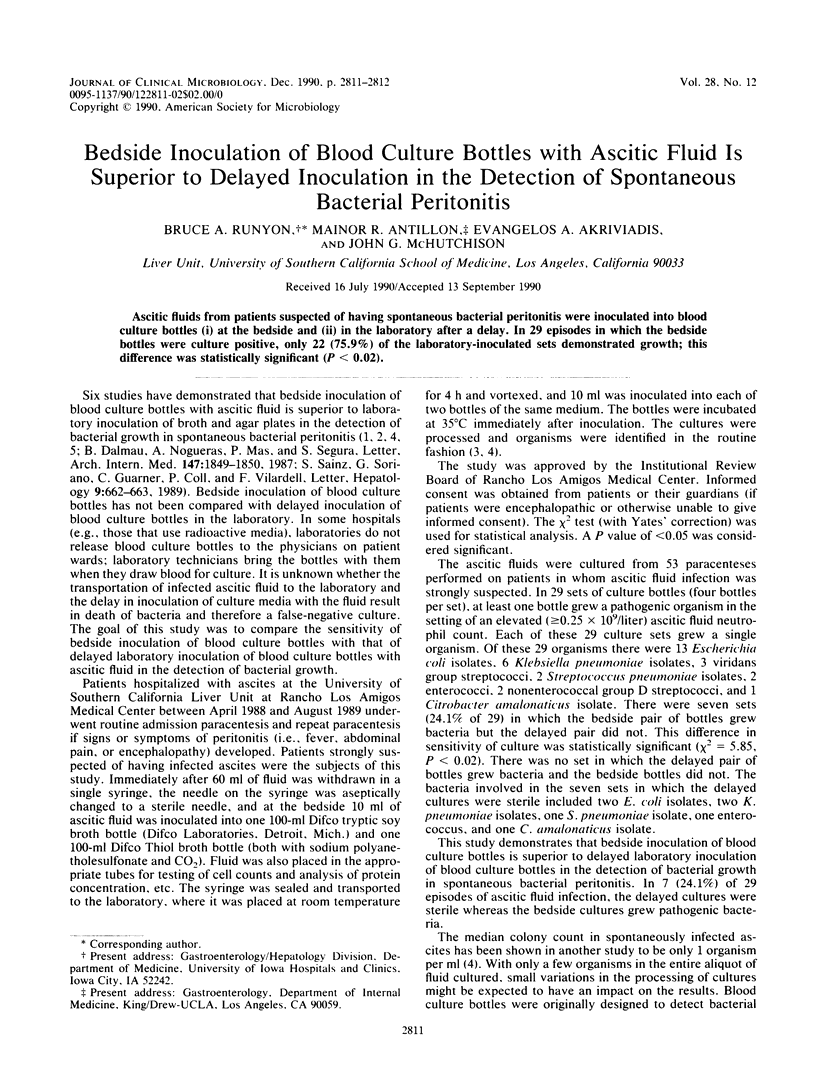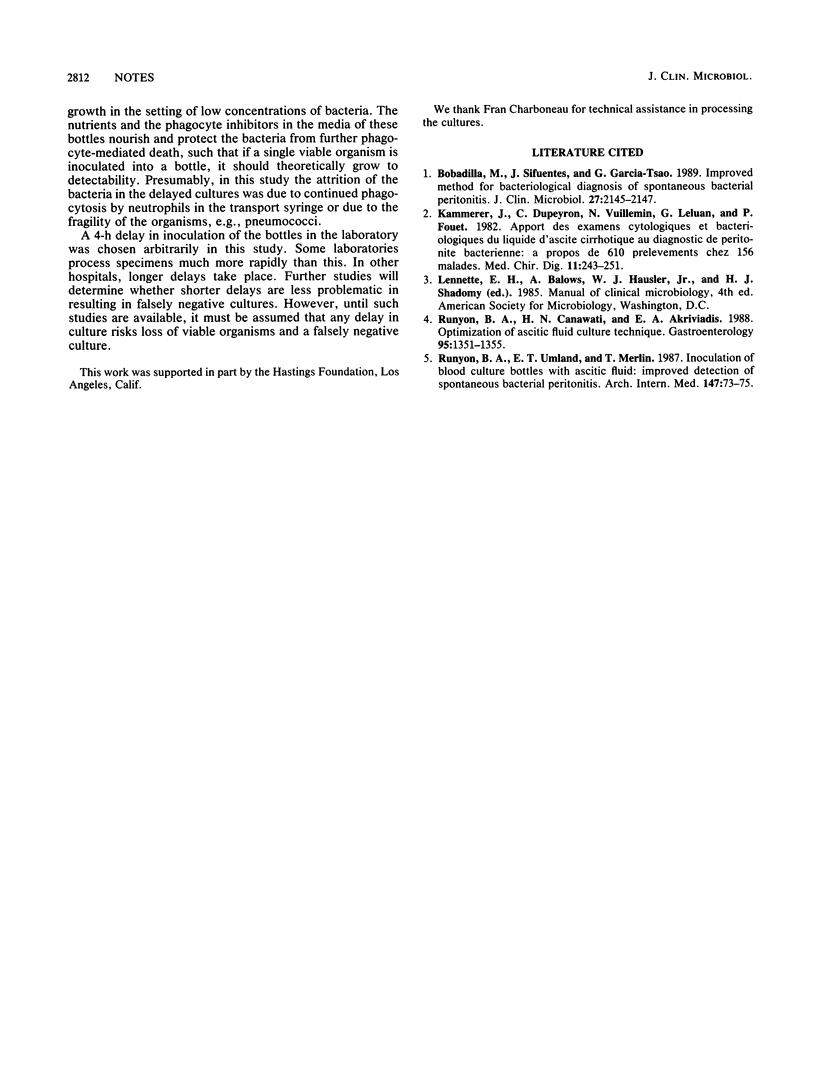Abstract
Ascitic fluids from patients suspected of having spontaneous bacterial peritonitis were inoculated into blood culture bottles (i) at the bedside and (ii) in the laboratory after a delay. In 29 episodes in which the bedside bottles were culture positive, only 22 (75.9%) of the laboratory-inoculated sets demonstrated growth; this difference was statistically significant (P less than 0.02).
Full text
PDF

Selected References
These references are in PubMed. This may not be the complete list of references from this article.
- Bobadilla M., Sifuentes J., Garcia-Tsao G. Improved method for bacteriological diagnosis of spontaneous bacterial peritonitis. J Clin Microbiol. 1989 Oct;27(10):2145–2147. doi: 10.1128/jcm.27.10.2145-2147.1989. [DOI] [PMC free article] [PubMed] [Google Scholar]
- Kammerer J., Dupeyron C., Vuillemin N., Leluan G., Fouet P. Apport des examens cytologiques et bactériologiques du liquide d'ascite cirrhotique au diagnostic de péritonite bactérienne. A propos de 610 prélevements chez 156 malades. Med Chir Dig. 1982;11(4):243–251. [PubMed] [Google Scholar]
- Runyon B. A., Canawati H. N., Akriviadis E. A. Optimization of ascitic fluid culture technique. Gastroenterology. 1988 Nov;95(5):1351–1355. doi: 10.1016/0016-5085(88)90372-1. [DOI] [PubMed] [Google Scholar]
- Runyon B. A., Umland E. T., Merlin T. Inoculation of blood culture bottles with ascitic fluid. Improved detection of spontaneous bacterial peritonitis. Arch Intern Med. 1987 Jan;147(1):73–75. [PubMed] [Google Scholar]


